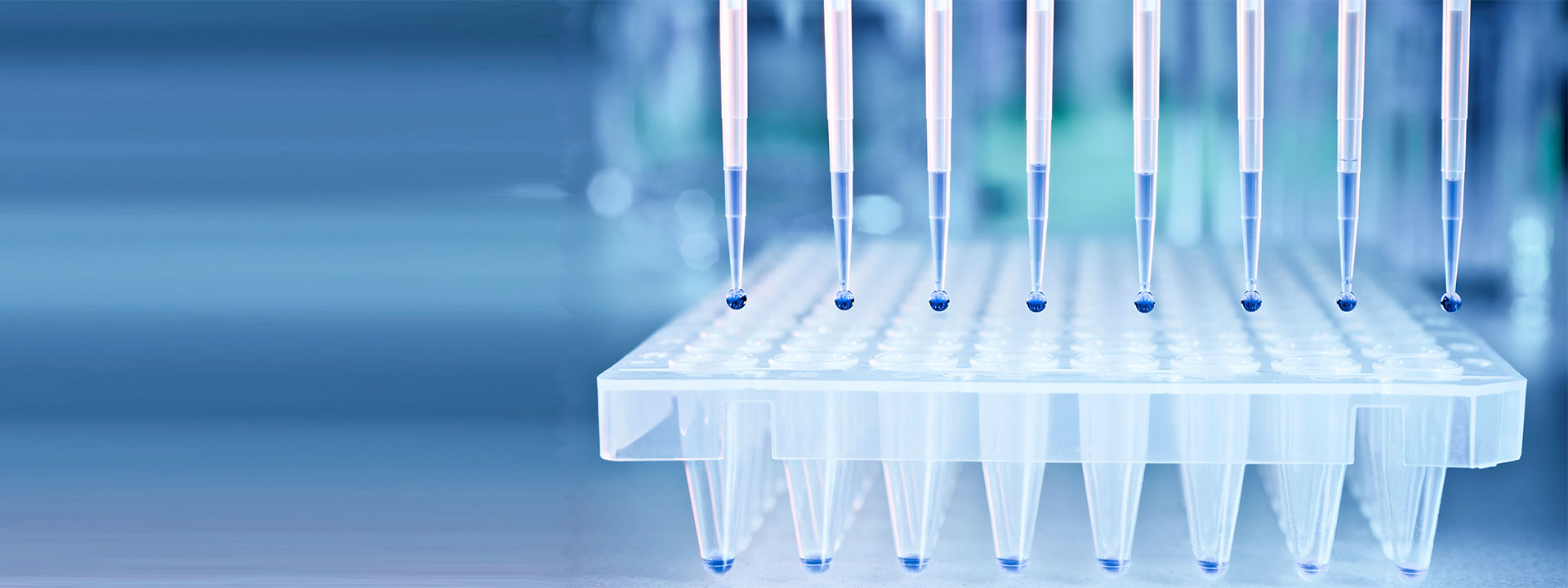GMO testing
Increasing planting figures, global trade routes and varying GMO approval situations in different countries require intelligent, customised analytical strategies and competent consulting for food, feed and seed producers. Our carefully designed testing programme ensures that your company meets stringent regulations in a timely and efficient manner while keeping your customers safe and reassured.
Key services
- GMO screening
- GMO identification
- GMO quantification
- Non-GMO labelling
Services for food, feed and seed
Analytical services by Eurofins Food & Feed Testing laboratories cover the full range of testing, from screening and identification to the precise quantification of trace components. We work with the shortest standard turnaround times and even offer express services for same day results.
The classic analytical strategy is based on three steps:
1. GMO screening – Faster and cost-efficient detection of multiple GMOs
GMO analysis strategies generally start with qualitative screening, which can reliably determine whether or not a GMO is present. Comprehensive screening methods are essential, especially for producers wishing to market their products with a "GMO-free" label.
2. GMO identification – Securing the marketability of products
Many regions have 0% tolerance thresholds for non-approved GMOs. Asynchronous approval situations, where a GMO is authorised for commercialisation in one country and not in another, can lead to problems with the marketability of products containing even traces of a particular GMO. It is therefore important that you understand the GMO approval situation in the country of origin of the raw materials, as well as the regulatory situation in the country where the final products will be marketed.
Specific qualitative methods are an important aspect of verifying the marketability of raw and processed products. With the help of specific detection methods, non-approved GMOs can be identified or excluded.
3. GMO quantification – is labelling required?
It’s not only the approval of genetically modified organisms that varies between countries, but also the threshold above which the GMO content must be declared on the label. Quantitative GMO detection can be used to determine whether the GMO content of a product is above or below a legal limit.
In the EU, for example, unintended and technically unavoidable contamination with approved GMOs up to 0.9% is exempt from labelling requirements under EU Regulation (EC) No 1830/2003. When it comes to feed products, non-approved GMOs are tolerated up to a threshold of 0.1%, as long as they meet certain requirements set out in EU Regulation (EC) No. 619/2011. For these requirements, quantitative analysis is the method of choice for verifying marketability.
Non-GMO labelling services
Our services for non-GMO labelling are tailored to the needs of food and feed producers, processors, and retailers. We offer:
- GMO testing and quantification: PCR-based detection of genetically modified organisms in raw materials, ingredients, and finished products, with a detection limit of up to 0.01%.
- VLOG-recognised GMO analysis: accredited testing for VLOG-certified companies, compliant with the latest VLOG analytics guidelines
- Non-GMO project approved GMO analysis
- Risk assessment & sampling plans: Tailored risk-based sampling strategies for raw materials, food and feed, aligned with your production processes.
- Supply chain verification: Documentation and verification of GMO-free status across all stages, from agriculture to processing and distribution.
- Labelling and compliance consulting: Expert guidance on EU labelling regulations in the EU, Switzerland, Norway, and other countries, as well as support in preparing documents for authorities and retail partners.
Additional services for non-GMO assurance
Beyond standard testing, we offer a range of complementary services to strengthen your non-GMO positioning
- IP-trust non-GMO certification, ensuring traceability and integrity throughout your supply chain
- Feed and livestock compliance in accordance with VLOG and Gentechnik-Durchführungsgesetz requirements
- Training and internal audits
- Digital reporting and data management via the Eurofins Online Service (EOL).
Our Competence Centre for GMO
From farm to fork: our GMO testing Competence Centre, Eurofins GeneScan GmbH, has been providing the food and feed industry with a wide range of different methods for GMO screening, identification and quantification for decades. Our focus is on seed breeding and trade, food and feed production, and retail, always with the benefit of our customers in mind. Our expertise sets the standard in seed, food and feed analysis with our extensive knowledge and excellent analytical skills. Partner with us to ensure your products meet the highest standards and leave your customers satisfied.
Legal bases and guidelines
- Directive 2001/18/EC of the European Parliament and of the Council (deliberate release into the environment of genetically modified organisms)
- Directive (EU) 2015/412 amending Directive 2001/18/EC as regards the possibility for the Member States to restrict or prohibit the cultivation of GMOs in their territory
- Regulation (EC) No 1829/2003 of the European Parliament and of the Council (genetically modified food and feed)
- Regulation (EC) No 1830/2003 of the European Parliament and of the Council (traceability and labelling of GMOs)
- Commission Regulation (EU) No 619/2011 (GMO in feed)
- Directive 2009/41/EC on contained use of genetically modified micro-organisms.
- Regulation (EC) 1946/2003 on transboundary movements of GMOs
- Federal Ministry of Agriculture, Food and Regional Identity (BMLEH): EC Genetic Engineering Implementation Act - Abridged version
- Bundeministerium der Justiz und Verbraucherschutz: Gentechnik-Durchführungsgesetz (EGGenTDurchfG) (in German)
Get in touch
Would you like to find out more about our testing solutions, or do you need tailored analytical support? Contact us today to get in touch with our experts.
